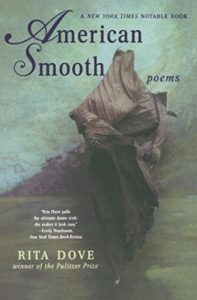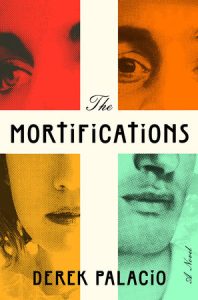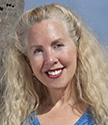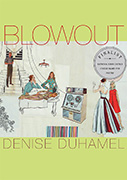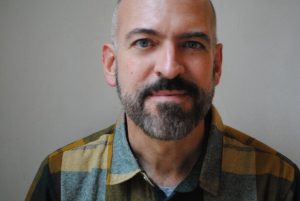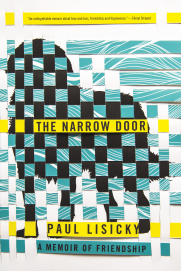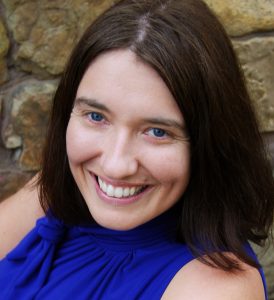

Nicole Dennis-Benn was born in Kingston, Jamaica. She left her home country at age seventeen to attend Cornell University, where she earned a B.A. in biology and nutritional sciences. She then earned a master’s in Public Health from the University of Michigan, and went on to work for Columbia University as a project manager in the Department of Social Sciences. She wrote during all of these years and, while working for Columbia, completed an MFA in fiction writing from Sarah Lawrence College.
We caught up with Dennis-Benn shortly after she published her first novel, Here Comes the Sun. The novel won a Lambda Literary Award and has been named a New York Times Notable Book and Editors’ Choice, a Kirkus Reviews Best Debut Fiction, an Amazon Best Book, and numerous other recognitions. Learn more about her work at her website.
Lisa Roney for The Florida Review:
Here Comes the Sun is a difficult book to read, not because of the writing–the writing is exquisite–but because the subject matter is difficult.
Nicole Dennis-Benn:
It’s a lot. It’s a lot that I dealt with in that book. Yeah, which I’m happy to talk about with you.
TFR:
Yes. One of the things I really loved about it was the centrality and complexity of the female characters. You know, there are male characters, too. And some of them are treating lovingly, like Charles. But it’s clearly a women-centered story.
Dennis-Benn:
Yes, it is.
TFR:
And Margot and Thandi are particularly compelling. I wonder if you could talk a little bit about how you inhabited those two different characters. They are obviously, clearly close and related. I wonder whether you feel that each of them takes up a part of you?
Dennis-Benn:
Right. That’s a good question.
TFR:
How do you feel about that?
Dennis-Benn:
Thandi, in all honesty, came into being when I went back to Jamaica in 2010. I moved to the US in 1999. And I never went back home because I feel like, yes, it would be only for brief visits, but I was in this self-imposed exile where I didn’t want to deal with the classism, the homophobia. All these other things. So I stayed away. But, upon meeting my wife, who was then my girlfriend, she said, “You know, you’ve never taken me to Jamaica, where you’re from. You have all this accent,” she’d say, but I didn’t even take her to the parts in Brooklyn that’s populated with Jamaicans. That was how, I think, traumatized I was.
And so, I finally made the decision to take her back home in 2010. And in going back home, a lot of the emotions that I was running away from came back. And I didn’t know what to do with them but just journal. And in journaling, I remember, Thandi came up. Because I was that girl, in high school, who felt ostracized because of our complexion. And also being working class. And so I was like, “Well, I’m not a non-fiction author, yet.” But, as a fiction author, how do I channel that? And Thandi, Thandi’s character came about ’cause she’s really me in that sense of going through that. In terms of… feeling insecure, feeling invisible. I wanted to document that through a teenage girl’s eyes. You know, because on the island itself they say, “Well, it’s vanity that would drive a girl to bleach her skin.” But she’s showing us that, no, it’s actually this whole context of feeling unworthy because of her darker complexion. And forcing people to say, “Well, look at me.” And so that’s really where I wanted to go, I hoped to have gone with that character.
TFR:
You did. You did. And I felt like you did a good job in the sense that you showed very well just the sort of myriad pressures on her, about that issue. One might think, “Why would anyone do that?”
Dennis-Benn:
Right.
TFR:
But you build them gradually, to just kind of show the pressure on her.
Dennis-Benn:
Yeah. And even her own educational possibilities. People want her… Margot and Delores want her to be a doctor. And she herself is saying, “No. That’s not what gonna get me that access. What’s gonna get me that access is lightening my skin.” And a lot of girls and boys that stay in Jamaica still feel the same way.
Margot is also a part of me as well. Because Margot, I call her my heroine. Because I feel like Margot is that person that I wanted to be, in that she was able to say, “You know what? I’m not given the things that I need to survive in life.” Like, she didn’t have the best education, like Thandi. Her mother sold her into prostitution very early. And Margot uses what she knows. And she’s kinda like that voice in society that’s saying that, “Well you know, this is what’s gonna get me that piece of that pie that I’ve been denied. And this is all I know. So let me use that to get ahead.” And so, people think Margot is a villain. I mean, yes, I can understand that.
TFR: But she’s heartbreaking.
Dennis-Benn:
But she’s heartbreaking. Exactly. The struggle with her being loved by her mother. The struggle with her own internal identity, or her sexuality. All these things are burdening Margot. And so, I think with that character, I kind of used not only what I’d experienced with homophobia, but also experiencing that anger. For a country that is so… Upward mobility is so hard there. And so, for Margot to say, “Well, it’s hard, but I’m gonna break it somehow.”
So I wanted to show the reader where that character is coming from. For her to have made certain decisions, though unpopular.
TFR:
Right. It’s interesting—I don’t want to get off the subject, but right now we’re living through a time in this country where rage seems appropriate, too. I think about the rage that how powerless people seem to feel here, and then you think about someone who has experienced what she’s experienced with far fewer resources, and…
Dennis-Benn:
Exactly.
TFR:
More discrimination. And you’re just like, “God, that rage… ”
Dennis-Benn:
Exactly.
TFR:
It just seems to grow. I found Margot really, really the most interesting. Because I couldn’t decide how I felt about her. It was, obviously, she was doing these horrible things to people that she supposedly cared about.
Dennis-Benn:
Right. I like that, exactly. And using her sexuality as a weapon.
One thing I wanted to talk about in the book was also the sexualization of our girls, and Delores, Margot, and Thandi have been victimized sexually. We have this conversation a lot, in terms of victims versus survival, in terms of the wording itself. And Margot, I feel like she’s that person that, if she were in this room, she would not say “I was a victim of anything, I am a survivor. I am gonna continue surviving.” So, taking that and putting it in that character as well, because Here Comes The Sun is about exploitation of the land itself but also the bodies of women. And, there was that parallel with Margot herself, kind of doing to those women what our government had done to us, in terms of the exploitation.
TFR:
This brings up something that’s masterful in the novel, your mastery of analogy and simile … and how often it was almost metonymic because there was this close relationship between the place and the bodies. You even talked about Margot and “the island of her body.” And then there was that wonderful one, “the red hibiscuses hang from their stems like the tongues of thirsty dogs.” And “they are as silent as caterpillars that rest on the leaves”, and then “Charles’s palms are dry and surprisingly warm like sun-warmed stones.”
Dennis-Benn:
Oh my gosh, I wrote that? [laughter]
TFR:
Yeah, you did! In fact, I had a whole list of them, that was like in the first half of the book, and then as time got closer, and I was reading this in the car and stuff, I was making a list of them in the back ’cause they go throughout the book. That kind of connection between bodies and place, and other phenomena, and the environment. Is that something that you did consciously?
Dennis-Benn:
I didn’t do it consciously! But I do have a passion, though. I feel that we are connected to our environment. We are… Everywhere we inhabit, we’re part of the universe, we’re part of the Earth, everything. So, I try my best not to overlook that in my writing as well, and I think it has come out.
TFR:
You could get somebody to go through your book with a highlighter and note all those, because I was thinking this would be a great literary criticism essay because they were just so close, and they were so predominant. You used the metaphoric language really well. They were always so apt, and yet they were thematic as well, which is really wonderful. Well, one of the things that Margot obsesses about is moving to another place on the island with Verdene, or even to London. But, Verdene tells her it wouldn’t really be different in those places.
So this actually reminded me… I don’t know if you’ve ever read Carson McCullers’ novelette, A Member of the Wedding, and it was written in the first half of the 20th century, and it’s kind of a pre-Civil Rights era story, but Frankie is obsessed about the North. And she dreams about moving to the North, which Carson McCullers ultimately did. She left her native Georgia and moved to New York. But it just reminded me of that kind of longing of this mythical place, where everything will be better. So, how do you think that the dream of a safe and accepting place influences the plot of this book, and to what extent do you consider that mythical other place an obsession in your work, in general?
Dennis-Benn:
Margot very much wants to escape, right? So, in her mind, she feels like escaping to Lagoons… That was gonna give her the safety that she wants, especially being a lesbian woman. I mean, she wouldn’t call herself a lesbian woman, but very much in love with Verdene. And I think that was her first step in acknowledging this love for Verdene. Of course, she ends up crushing it, but in her mind that place would signify happiness, it would signify abundance and love. For her, it was really important, but in one part Verdene would say to her, “Well, we’re still in Jamaica. It’s not like Lagoons is in the United States or in Canada. We’re still in Jamaica.” Even that dynamic of still not wanting to leave her own country… Even though, perhaps Verdene could take her to London, and Verdene herself is living in Jamaica, loving the country so much that they still don’t want to leave it. But still not being able to survive as themselves. And I wanted very much to capture that as well. In our country, a lot of people fantasize about heading up North, like heading to the United States.
TFR:
And you did that!
Dennis-Benn:
Yeah exactly! It’s like, what we see on the other side… The other side looks greener. And for a lot of us, it’s freedom, freedom to be ourselves. For me, it was freedom to be a lesbian. And I am sure if Margot had that freedom to come here too, she would probably would have said yes. If it weren’t for Thandi keeping her back, for example. But I had no such links, besides parents, saying, “Coming here, I could be also beautiful.” Because in my own country, it’s kind of interesting because yes, there is classism, there is complexionism. Here, there’s racism. But it’s more hurtful to be discriminated against by your own people, who are looking down on you because in their minds there’s a hierarchy of blackness. But here I’m like, “Oh, well… Okay, you expect it, so what?” It’s kind of interesting psychologically to…
TFR:
It’s not that it doesn’t exist here. It’s not that it’s the mythic perfect place.
Dennis-Benn:
Exactly, yeah. But it’s better than still working in a house of all people of color and being looked down upon by your own people who you’ve expected them to embrace you.
TFR:
That’s interesting. What do you think the pros and cons have been for you, of moving from Jamaica to New York? And I think again of this situation that we’re in in this country right now, where people keep saying, “I’m gonna move to Canada.” And I have the option. My husband’s a Canadian citizen, so… And he’s lived there before. He grew up there, lived most of his life there. He knows it’s not a mythic perfect place, but sometimes for me it kind of looms that way, other than the weather. So what do you think about this… I guess there are two conflicting urges that we have and one is to find a better place, and one is to stand and fight.
Dennis-Benn:
I think what’s going on with this country is that Americans are now experiencing what it’s like to be an immigrant because it’s not the easiest decision to move away from your home land. And so when that decision is made it’s definitely because you’re fleeing something and hoping for the better, but still not wanting to cut ties with your country. Period. And so it’s like that ambivalence that we feel and it’s gonna definitely… It’s a lifetime of feelings. Home-sickness is definitely not the easiest and I think I wouldn’t mock anybody leaving the United States, but at the same time I think it’s worth it to still fight, to still stay here.
Especially for those people who are voiceless. And I got emotional when I was at BEA in Boston because, while I’m here I’m free technically, I’m that immigrant living the “dream” whatever that looks like. For me it’s that published book that ended up here in the New York Times, and I felt like, “Wow!” But a lot of my friends, the Margots of society, they are back in Jamaica and I’m gonna get emotional… They can’t come here, they can’t escape. And so what do they do with their situation? Some of them wither, some of them just give up. I have a friend in Jamaica, she’s now a security guard and… She should be in this chair because she’s a writer, and yeah… But I made it… I’m getting teary-eyed…
TFR:
Clearly I think there is a way in which this is a social protest novel… Do you have a sense about what you think writer’s responsibility is in terms of writing for social justice and change, and how do you balance that with other concerns in your writing?
Dennis-Benn:
I use fiction as my best method of activism. Because it’s not didactic. People don’t know that they’re being fed certain things, ’cause it’s entertaining. So I try my best to balance that.
TFR:
Page turner. [chuckle]
Dennis-Benn:
I do it through characterization. Humanizing characters, or documenting the human experience. So, yes, a book could be set in Jamaica, or it could be set in Brooklyn, or Canada, or wherever. But people can still come to the table knowing that, “Well, this is what I’ve felt before in terms of relationships, or love and loss, or displacement.” Doing it that way, and then individuals can see how certain things affect people.
TFR:
And maybe relate to it in a way that they might not otherwise.
You mentioned just very briefly when we first sat down to talk that you haven’t written nonfiction yet. So is that something you’ve been thinking about?
Dennis-Benn:
I’ve been thinking about it, because I’ve been writing a series of essays and people have been saying, “Oh, this looks like a collection you’re starting here.” Or even I’ve gotten inquires about memoirs, for example. I think at some point I will, but I think for now I speak through my fiction. But I’m not knocking the idea of doing a nonfiction down the road.
TFR:
There are different thoughts about it in terms of, what you say, in terms of people sometimes, I think, have an easier time entering into the fictional world and absorbing that fictional world. And on the other hand there’s the urge to testify which you can do, really, a nonfiction as yourself, as, “This is my experience and it’s real.”
Dennis-Benn:
Exactly. Yeah…
TFR:
Okay, cool. Well, I’ll look forward to that. [chuckle]
Dennis-Benn: The thing with non-fiction, I think it’s also more brave… With fiction we hide behind our characters, while with non-fiction you say… You’re right, it’s you.
TFR:
Another question I wanted to ask you about has to do with secrets. Could you talk a little bit more about why… I kept thinking about secrets in this book and how harmful they are and how strange it kind of is that there’s such a wonderful plot device, and yet… I would just pretty much say most of the time in life they’re just awful. Do you think you could comment about that relationship between the fictional world and the living world where secrets drive fiction forward? Secrets are this thing that can be uncovered and can land surprises for people that change them. As opposed to in life where mostly they’re just a destructive element. I mean, in some ways they are in fiction too I guess.
Dennis-Benn:
I feel like we’re constantly evolving as human beings, and there are usually epiphanies that happen. It doesn’t have to be the deepest darkest secrets but something that we didn’t know before, that we just discovered, and we’re like, “Oh. Wow,” and the world suddenly looks different.
And using that device in fiction I feel like, for Thandi of course being a teenager, discovering that her mother is not perfect. And that discovery for a lot of us happens when we’re a little older, when we were like, “Oh, our parents are human beings as well. They’re not God.” And so, for her saying, “Oh, wow. Delores did this? Really?” And then Margot keeping that secret that would actually save her life, because if she ever discloses that, that could be the end of it for her. So that was important for her to keep. And then with Thandi, that secret of wanting to be an artist, and wanting desperately to… She wants more, but also what’s really ailing her is feeling invisible and knowing that she’ll still keep that as a secret and pretend to be that color.
TFR:
I wanted to ask which was about your use of dialect in the book. Dialect is so often criticized and you obviously made a choice to say “No. This is a part of the culture and I want to reflect that accurately.” So what… Could you talk a little bit more about your decision to write the dialogue in dialect so frequently?
Dennis-Benn:
My book is about working class Jamaican women. And they would not be speaking standard English unobserved. Language is a huge part of identity so I wanted to preserve that because forcing the reader to slow down because to see, to hear them speak and even… It’s to really see them as well. Live on the page with them just for a moment. And I find that that’s really important for me. Not only to preserve my language but also the authenticity of the characters.
TFR:
Any other last things that you would like to tell us about Here Comes The Sun or what you’re up to next?
Dennis-Benn:
So first of all I enjoyed writing this book. It was definitely a great purging in writing this book. There are still themes from Here Comes The Sun that will be in the second book, but it will be even more layered… I’m really excited now about that second project.


















